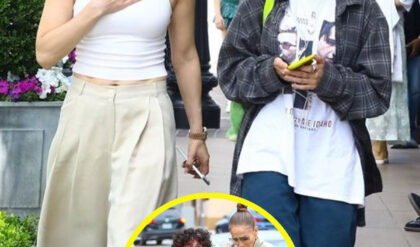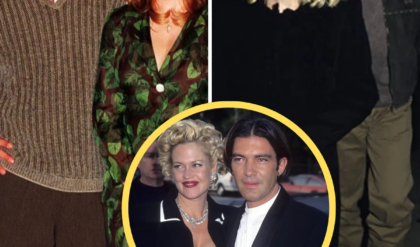Denzel Washington Allegedly Criticizes Oprah Winfrey for Exploiting Black Actors: Unpacking the Controversy
In a recent development within the entertainment industry, acclaimed actor Denzel Washington has purportedly leveled sharp criticism against media mogul Oprah Winfrey, accusing her of exploiting and “stealing” from black actors. These explosive allegations have ignited a firestorm of debate, shedding light on issues of representation, power dynamics, and ethical conduct within Hollywood.
According to reports circulating on various media platforms, Denzel Washington has publicly condemned Oprah Winfrey for what he perceives as her exploitation of black actors within the entertainment industry. Washington allegedly suggested that Winfrey, despite her public image as a champion of diversity and empowerment, has profited unfairly at the expense of black talent, thereby perpetuating systemic inequalities.
The specific grievances raised by Washington revolve around claims that Winfrey has capitalized on the struggles and narratives of black actors and actresses for personal gain, without adequately supporting or empowering them beyond superficial representation. These accusations strike at the heart of broader conversations about equity, authenticity, and accountability in media representation.
In response to Denzel Washington’s allegations, reactions have been varied and impassioned. Supporters of the actor applaud his courage in speaking out against perceived injustices within the entertainment industry, particularly regarding the treatment of black artists. They argue that Washington’s critique underscores the need for greater transparency and ethical accountability among influential figures like Winfrey.
Conversely, critics have challenged the validity of Washington’s claims, highlighting the absence of concrete evidence or specific instances to substantiate allegations of exploitation or theft. Some have cautioned against rushing to judgment, emphasizing the complexities of navigating race, power dynamics, and representation in Hollywood.
Oprah Winfrey, renowned for her groundbreaking talk show, multimedia empire, and philanthropic endeavors, has long been celebrated as a transformative figure in American culture. Her contributions to media representation, social justice advocacy, and philanthropy have earned her widespread acclaim and influence, particularly within communities of color.
However, allegations of exploiting black actors raise critical questions about the ethical responsibilities of influential media personalities. Supporters of Winfrey cite her significant impact on elevating diverse voices and addressing social issues, while detractors scrutinize her methods and the broader implications of her influence on cultural narratives.
The controversy surrounding Denzel Washington’s criticisms highlights ongoing challenges in achieving equity and representation in entertainment. As the industry strives to address systemic barriers and amplify marginalized voices, stakeholders must confront issues of exploitation, tokenism, and genuine inclusivity.

Promoting accountability and ethical conduct among industry leaders is essential to fostering an environment where all artists, regardless of background, receive fair recognition, opportunities, and compensation for their contributions. By prioritizing diversity, authenticity, and respect for cultural narratives, Hollywood can promote meaningful change and empower underrepresented communities.
As discussions continue to unfold, it is imperative for stakeholders within the entertainment industry and beyond to engage in constructive dialogue about issues of representation, power dynamics, and ethical responsibility. Denzel Washington’s allegations against Oprah Winfrey underscore the complexities of navigating race and influence in Hollywood, prompting reflection on how media personalities can use their platforms responsibly to promote equity and social justice.
By advocating for transparency, accountability, and genuine inclusivity, stakeholders can work collaboratively to dismantle systemic inequalities and foster a more equitable and representative cultural landscape. As Denzel Washington and others continue to challenge norms and advocate for change, their actions serve as a catalyst for progress towards a more inclusive and just entertainment industry.




